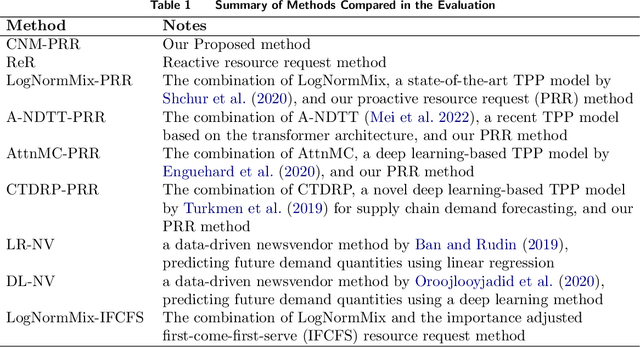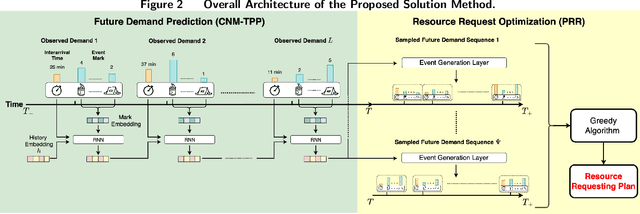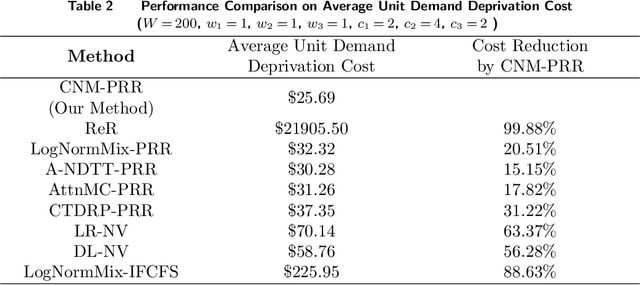Bintong Chen
Proactive Resource Request for Disaster Response: A Deep Learning-based Optimization Model
Jul 31, 2023



Abstract:Disaster response is critical to save lives and reduce damages in the aftermath of a disaster. Fundamental to disaster response operations is the management of disaster relief resources. To this end, a local agency (e.g., a local emergency resource distribution center) collects demands from local communities affected by a disaster, dispatches available resources to meet the demands, and requests more resources from a central emergency management agency (e.g., Federal Emergency Management Agency in the U.S.). Prior resource management research for disaster response overlooks the problem of deciding optimal quantities of resources requested by a local agency. In response to this research gap, we define a new resource management problem that proactively decides optimal quantities of requested resources by considering both currently unfulfilled demands and future demands. To solve the problem, we take salient characteristics of the problem into consideration and develop a novel deep learning method for future demand prediction. We then formulate the problem as a stochastic optimization model, analyze key properties of the model, and propose an effective solution method to the problem based on the analyzed properties. We demonstrate the superior performance of our method over prevalent existing methods using both real world and simulated data. We also show its superiority over prevalent existing methods in a multi-stakeholder and multi-objective setting through simulations.
Diversity Preference-Aware Link Recommendation for Online Social Networks
May 21, 2022



Abstract:Link recommendation, which recommends links to connect unlinked online social network users, is a fundamental social network analytics problem with ample business implications. Existing link recommendation methods tend to recommend similar friends to a user but overlook the user's diversity preference, although social psychology theories suggest the criticality of diversity preference to link recommendation performance. In recommender systems, a field related to link recommendation, a number of diversification methods have been proposed to improve the diversity of recommended items. Nevertheless, diversity preference is distinct from diversity studied by diversification methods. To address these research gaps, we define and operationalize the concept of diversity preference for link recommendation and propose a new link recommendation problem: the diversity preference-aware link recommendation problem. We then analyze key properties of the new link recommendation problem and develop a novel link recommendation method to solve the problem. Using two large-scale online social network data sets, we conduct extensive empirical evaluations to demonstrate the superior performance of our method over representative diversification methods adapted for link recommendation as well as state-of-the-art link recommendation methods.
 Add to Chrome
Add to Chrome Add to Firefox
Add to Firefox Add to Edge
Add to Edge